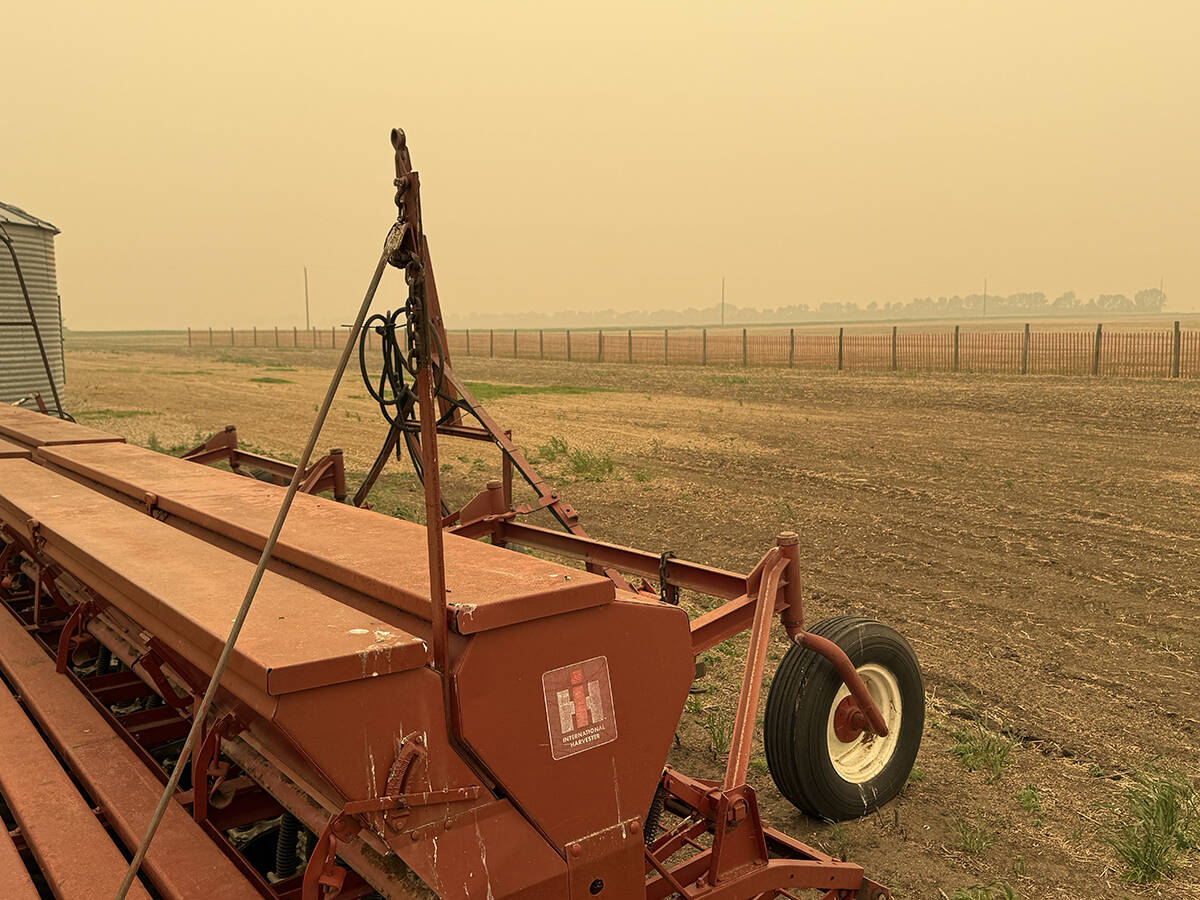EDMONTON – It may not be illegal for packing plants to triple their profits when cattle producers are going broke, but the rules that allow unfair profits have to change, says an Alberta cattle producer.
“There’s some real restructuring that needs to be done,” said High River cattle producer Grant Hirsche. He started selling his own beef from the back of a refrigerated truck to try and make more money from his cattle than packing plants were willing to pay.
In a report released Aug. 3, Alberta auditor general Fred Dunn said while packer profits have increased to $139 per head from $46, or 281 percent since the beginning of the BSE crisis, the packers did nothing wrong or illegal.
Read Also

Wildfires have unexpected upside this year
One farmer feels smoke from nearby wildfires shrouded the July skies and protected his crop from the sun’s burning rays, resulting in more seeds per pod and more pods per plant.
They benefited because they were able to buy cheap cattle and increase their slaughter capacity.
Dunn said while the BSE programs were generally well designed, the first federal and provincial program was flawed and drove down the price of cattle.
“It created some rush or panic within the producers to sell,” said Dunn, who noted farmers were only able to get government assistance if their cattle were slaughtered.
Despite design flaws in the initial programs, Dunn said he believed Alberta taxpayers got value for their more than $400 million in BSE aid programs.
Alberta agriculture minister Shirley McClellan said the auditor general’s report made it clear that the programs worked as they were intended.
“They moved 1.2 million head of cattle through the system. That was our issue,” said McClellan, who reminded reporters at the news conference that before the aid programs, the packing plants were slaughtering only a limited number of cattle and animals were backing up in the feedlots. Now packers are slaughtering more than 70,000 head a week.
Arno Doerksen, chair of the Alberta Beef Producers, said the auditor’s conclusion is not a surprise.
“We understand what happens in the market when there is an oversupply. Prices go in the wrong direction,” said Doerksen. The real problem for cattle producers is a lack of packing space, he added.
But Hirsche said the attitude of government and industry is frustrating.
“When I see our industry leaders and governments stand up and say ‘see, nothing is wrong, everything is fine’ – well it’s not fine.”
Hirsche is looking for governments and industry to provide long-term solutions, like market development and increased slaughter capacity, to help cattle producers stay in business.
Feedlot operator Rick Paskal is calling on packers to do the right thing and return some of their profits to cattle producers.
Paskal suggested packers write a cheque for $100 for every animal they bought to even out the hurt in the industry.
Dunn said it wasn’t an easy task to get the three largest packing plants to open their books. It took almost three months of meetings and negotiations to get the financial information needed for his report.
“They were not greeting us with open arms. I think at the end of the day they felt I would tell a fair and honest result and I wasn’t trying to make a political statement or I’m not trying to chastise anyone, but I was trying to give an honest result,” said Dunn.
He added that the packers have not disputed any of the numbers in his report.
Earlier this year, the federal government’s agriculture committee tried to pry financial information out of the packers but was unsuccessful.
Dunn said he had to guarantee the packers that their individual financial statements would not be singled out or reported separately.
He also tried to contact smaller provincial slaughterhouses for the report, but he said he was told they were too busy to talk.
In a written statement, Lakeside Packers said: “The auditor’s report confirms that supply and demand drive the economics of Canada’s beef business.”
Rob Meijer, director of public affairs for Cargill, said while packers have received some short-term benefit from the BSE crisis, they view it as a long-term problem and packers may still face unexpected expenses.
Dunn said governments and industry are facing difficult decisions with an increased number of cattle that will come to market this fall.
“We also recommend they look very quickly at a contingency plan to deal with immediate issues, and the most immediate issue is the very large surplus of cattle inventory we have today,” said Dunn.














